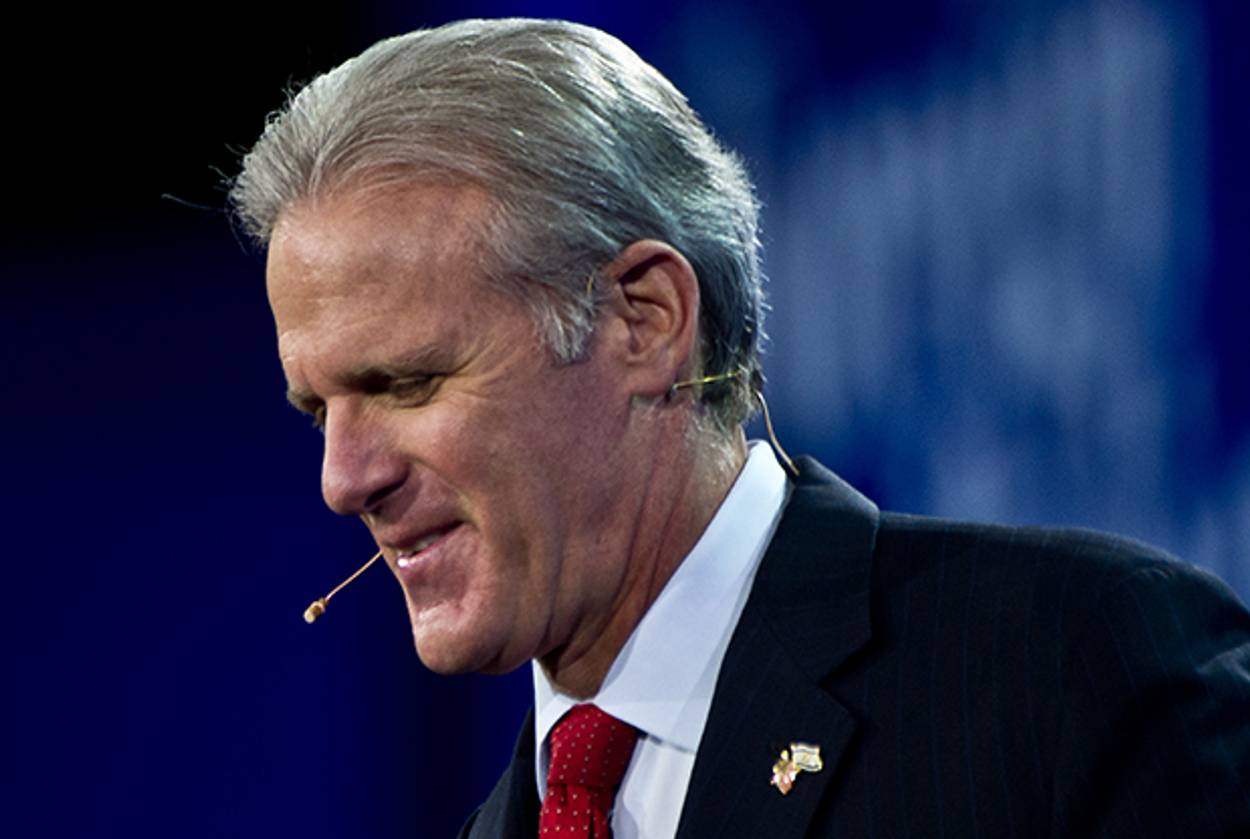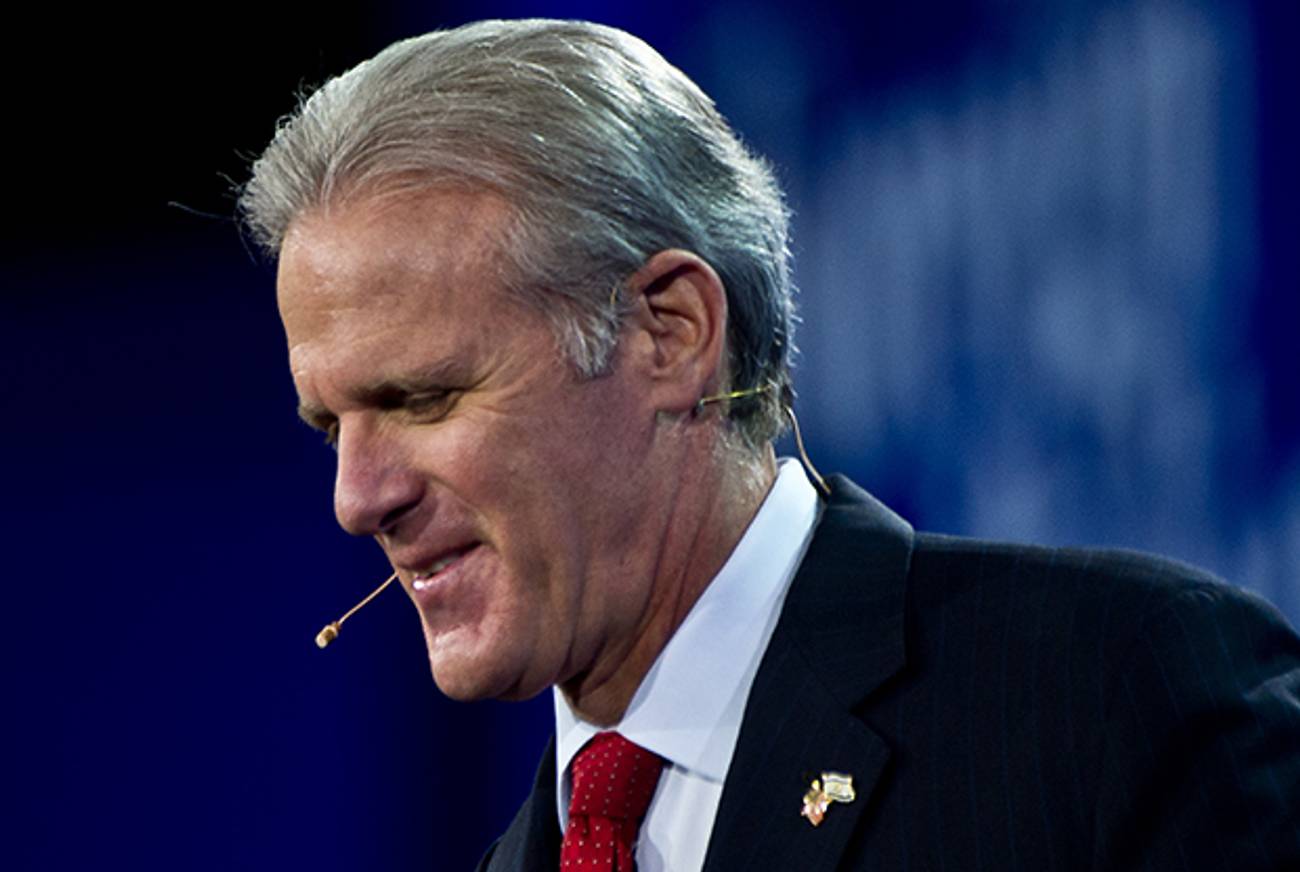Michael Oren to Run for Knesset
Will he push Israel to unilaterally withdraw from the West Bank?




At a press conference today, former Israeli Ambassador to the U.S. Michael Oren announced his candidacy for Knesset. Standing alongside Moshe Kahlon, the popular former communications minister and founder of the new “Kulanu” political party, the American-born historian said he would be tasked with formulating the center-right party’s diplomatic policy. “People ask me what Zionism is,” Oren told the assembled reporters. “Zionism for me is a responsibility. Today, I’m taking responsibility by running for Knesset.”
Kulanu has been rising in the polls and stands a good chance of being a kingmaker in the upcoming Israeli elections. But Oren’s addition as the party’s foreign policy maven is notable for another reason: for a decade, he has supported unilateral Israeli withdrawal from the occupied territories, and has persistently pushed that line in the Israeli and American media ever since stepping down as Israel’s ambassador.
Back in 2009, before he was tapped as Israel’s envoy, Oren dubbed himself “the last of the standing unilateralists” while speaking at Georgetown. “I believe that the only alternative Israel has to save itself as a Jewish state–and let’s be frank about that, the Jewish state is predicated on having a Jewish majority–the only way we can do that is by unilaterally withdrawing our border and withdrawing our settlements in the West Bank,” he said.
Students of Oren’s in the U.S.–where he taught at Harvard, Yale and Georgetown–confirm this was his publicly expressed view as early as 2005. And soon after he completed his service as Benjamin Netanyahu’s envoy in Washington, Oren began advocating unilateral withdrawal (against the Prime Minister’s own policies), dropping the plan into his January 2014 CNN obituary of Ariel Sharon. Since then, he’s pushed what he calls “Plan B” at Israeli security conferences and in the press at every opportunity.
Currently, Israel has right-wing political parties that support two states and others which do not, but none which advocate unilateralism. With Oren’s addition to the mix, that may have just changed.
Previous: Michael Oren: If Peace Talks Fail, Israel Should Withdraw from West Bank
Michael Oren Steps Down as Ambassador
Yair Rosenberg is a senior writer at Tablet. Subscribe to his newsletter, listen to his music, and follow him on Twitter and Facebook.